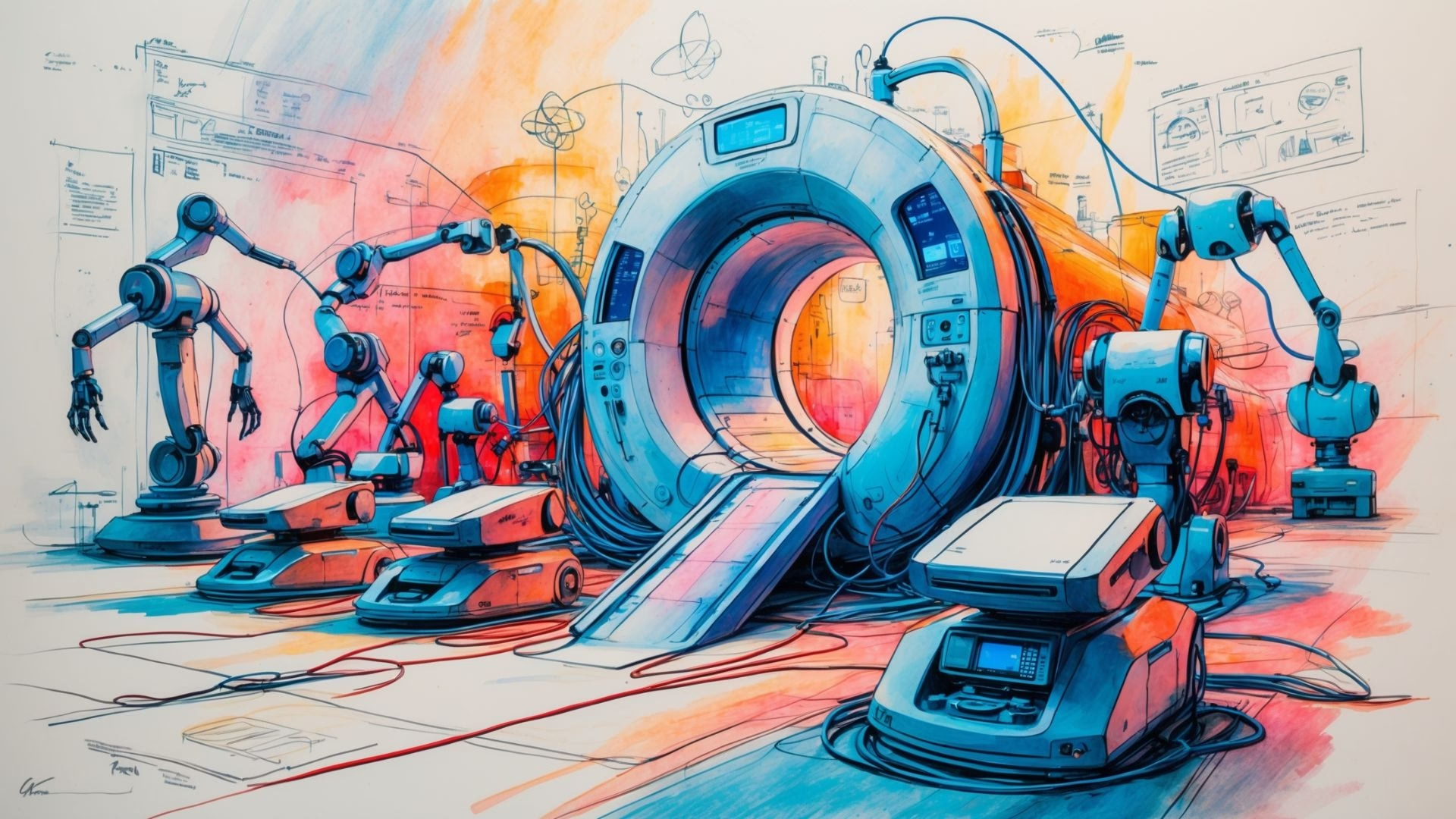Mastering Listening for International Exams: Advances in Medical Technology
Welcome to your listening practice session! The listening sections of exams like the TOEFL, IELTS, and SAT are designed to test how well you can understand spoken English in an academic context. They don’t just test if you can hear the words, but if you can comprehend main ideas, specific details, speaker attitude, and implied meanings.
To excel, you need to become an active listener. Here are a few universal tips to sharpen your skills:
- Predict the Content: Before the audio begins, look at the questions. They often contain keywords that give you clues about the topic and what you should listen for.
- Focus on the Main Idea: In any lecture or conversation, try to identify the central theme. Ask yourself, “What is the single most important message the speaker wants to convey?” This is often stated near the beginning.
- Listen for Signposts: Speakers use “signposting language” to guide you. Phrases like “First,” “On the other hand,” “To summarize,” or “A key example of this is…” are signals that mark the structure of the talk and highlight important information.
- Don’t Panic if You Miss Something: You don’t need to understand every single word. If you miss a word or a phrase, stay calm and focus on the rest of the audio. You can often understand the meaning from the surrounding context. Keep listening!
Now, let’s apply these skills. You are about to hear a university lecture on the evolution of modern medical technology.
Listen
Listening Quiz
Listening Transcript: Please do not read the transcript before you listen and take the quiz
Good morning, everyone. In today’s lecture, we’re going to embark on a journey through one of the most dynamic and impactful fields of modern science: the evolution of medical technology. We’ll trace the path from the foundational diagnostic tools that first allowed us to see inside the human body without a scalpel, to the sophisticated robotic systems that are revolutionizing surgery today.
Let’s begin with a concept that we now take for granted: diagnostic imaging. Before the late 19th century, the inner workings of the body were a black box, accessible only through surgery. The discovery of the X-ray by Wilhelm Conrad Röntgen in 1895 was a monumental paradigm shift. For the first time, physicians could visualize bones and foreign objects non-invasively. This was revolutionary, but it was a flat, two-dimensional shadow. It offered limited insight into the body’s soft tissues—the organs, muscles, and tumors where so many diseases originate.
The next great leap forward didn’t arrive until the 1970s, with the advent of Computed Tomography, or the CT scan. A CT scanner essentially takes a series of X-ray images from different angles and uses computational power to assemble them into cross-sectional slices of the body. Suddenly, we had a detailed, three-dimensional map. However, CT scans still relied on ionizing radiation, which carries its own risks, and the contrast between different types of soft tissue was often subtle.
This is where Magnetic Resonance Imaging, or MRI, changed the game. Developed and refined through the 1970s and 80s, MRI technology does not use X-rays. Instead, it employs a powerful magnetic field and radio waves to align the protons in the body’s water molecules. When the radio waves are turned off, the protons release energy as they relax, and a scanner detects this energy, using it to construct an incredibly detailed image. The beauty of MRI is its unparalleled ability to differentiate between soft tissues. It gave us a crystal-clear view of the brain, spinal cord, ligaments, and tumors in a way that was previously unimaginable.
While diagnostic imaging was transforming how we see disease, another revolution was brewing in the operating room. For over a century, surgery was defined by the open approach: a large incision to give the surgeon a direct view and ample room to work. While effective, this approach resulted in significant trauma, longer recovery times, and a higher risk of infection. The 1980s saw the rise of minimally invasive surgery, primarily through laparoscopy, where surgeons operate through small incisions using a camera and long, thin instruments. This was a significant improvement, but it had drawbacks. Surgeons lost the dexterity of their wrists, the 3D vision they were used to, and the tactile or haptic feedback that is so crucial for delicate procedures.
This challenge paved the way for the next major innovation: robotic-assisted surgery. The most famous example, of course, is the Da Vinci Surgical System, first approved by the FDA in the year 2000. It’s important to clarify a common misconception: the robot does not perform surgery on its own. It is a master-slave system. The surgeon sits at a console, often in the same room, viewing a high-definition, magnified 3D image of the surgical site. Their hand movements are translated, in real-time, into incredibly precise movements of the robotic arms.
The advantages are manifold. The system filters out natural hand tremors, allowing for superhuman steadiness. The robotic wrists can rotate 360 degrees, far beyond the capability of a human wrist, enabling unprecedented dexterity in tight spaces. This technology has transformed fields like urology and gynecology, leading to less pain, reduced blood loss, and faster post-operative recovery for patients.
So where are we headed next? The future is likely a fusion of these technologies with artificial intelligence and augmented reality. Imagine an MRI scan that is analyzed by an AI, which then highlights a potential tumor with a level of accuracy that surpasses the human eye. Now imagine a surgeon using a robotic system where that AI-generated map is overlaid directly onto their 3D view during the operation—a form of augmented reality guiding their instruments. This isn’t science fiction; it’s the very frontier of medical technology. The goal, as always, is to make medicine more precise, less invasive, and ultimately, more effective for the patient. The proliferation of data and computational power ensures that this evolution will only accelerate. We are in a veritable golden age of medical innovation.
Advanced Vocabulary and Phrases
- Non-invasive: This is an adjective used to describe a medical procedure that doesn’t require breaking the skin or entering the body.
- How we used it: We talked about X-rays being a non-invasive way to see bones, meaning doctors could look inside you without having to perform surgery.
- Paradigm shift: This is a noun phrase that means a fundamental and radical change in the accepted way of thinking about or doing something.
- How we used it: The invention of the X-ray was called a paradigm shift because it completely changed the basic approach to medical diagnosis.
- Advent: This noun means the arrival of a notable person, thing, or event.
- How we used it: “The advent of Computed Tomography” refers to the arrival or invention of the CT scan, marking a new era in imaging.
- Unparalleled: This is an adjective that means having no equal; unmatched.
- How we used it: We said MRI has an unparalleled ability to show soft tissue, meaning no other technology at the time was as good at it.
- Minimally invasive: This describes a medical procedure that is less damaging to the body than open surgery, usually involving very small incisions.
- How we used it: Laparoscopy is a type of minimally invasive surgery because it uses small cuts instead of a large one.
- Haptic feedback: A noun phrase referring to the sense of touch, specifically in the context of technology that simulates it.
- How we used it: Surgeons using early keyhole surgery lost haptic feedback, meaning they could no longer feel the tissues they were working on through their instruments.
- Manifold: This is an adjective meaning many and various.
- How we used it: “The advantages are manifold” means that robotic surgery has many different benefits.
- Post-operative: An adjective that means “after a surgical operation.”
- How we used it: Robotic surgery can lead to faster post-operative recovery, meaning patients get better more quickly after their surgery is finished.
- Proliferation: This is a noun that means a rapid increase in numbers.
- How we used it: The proliferation of data means that the amount of available information is growing very quickly, which helps accelerate medical advances.
- Veritable: An adjective used to emphasize that something is true or real, often in a surprising or impressive way. It’s a stronger way of saying “actual” or “real.”
- How we used it: Calling this era a “veritable golden age of medical innovation” emphasizes that it truly is a remarkable and impressive period of advancement.










0 Comments